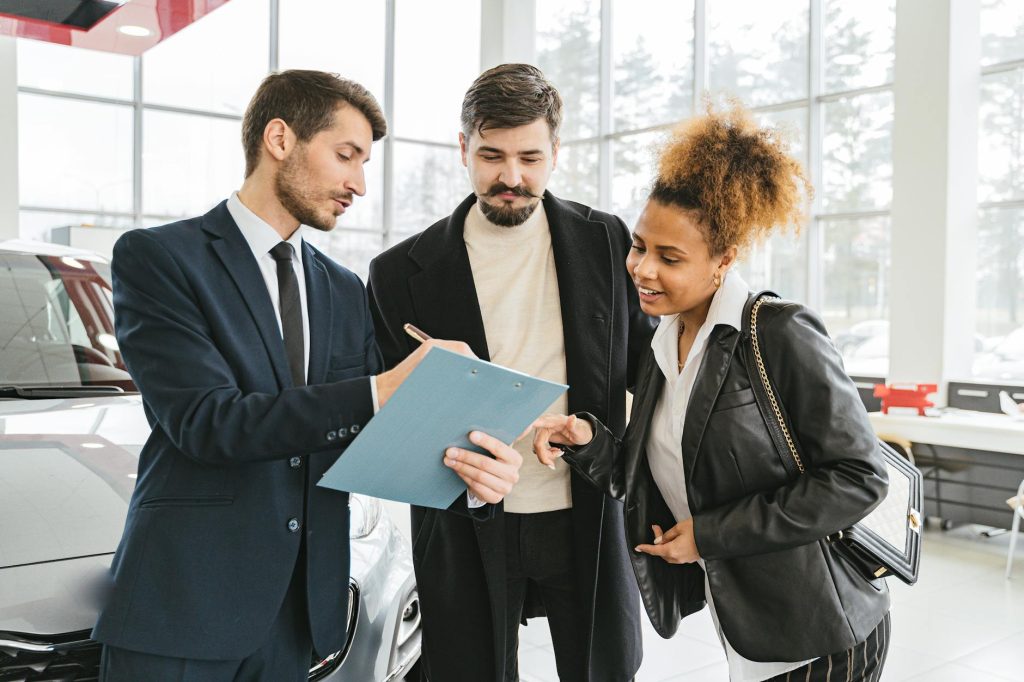
Image source: pexels.com
Deciding between leasing and buying a car can be a big financial choice. The option you pick affects your monthly payments, long-term costs, and even your daily driving habits. Leasing is often advertised as a lower-cost way to drive a new vehicle, but it comes with its own set of rules and trade-offs. If you’re weighing your options, it’s important to understand what really happens when you lease instead of buying a car. Knowing the details can help you avoid surprises and make the best decision for your budget and lifestyle.
Let’s break down the key differences and what you should expect if you choose to lease instead of purchase your next ride.
1. Lower Monthly Payments, But No Ownership
One of the main perks of leasing a car is the lower monthly payment compared to buying the same vehicle. Leasing usually requires a smaller down payment as well. This is because you’re paying only for the car’s depreciation during the lease term, not the full value of the car.
However, when you lease instead of buying a car, you never actually own it. At the end of the lease, you hand the car back to the dealership. There’s no asset to show for your money spent, which can be a drawback if you prefer to build equity over time.
2. Mileage Limits and Wear-and-Tear Fees
Leasing comes with mileage restrictions, usually between 10,000 and 15,000 miles per year. If you go over, you’ll pay a fee for every extra mile—sometimes as much as 25 cents per mile. This can add up quickly if you have a long commute or enjoy road trips.
When you lease instead of buying a car, you also have to keep the vehicle in good shape. Excessive wear and tear—like dings, scratches, or stained seats—can cost you when you return the car. Dealerships can be picky about what counts as “normal” use, so it pays to keep the car in excellent condition.
3. Always Driving a Newer Car
Leasing makes it easy to upgrade to a new vehicle every few years. Once your term is up, you can simply start a new lease with the latest model. This appeals to drivers who want the newest features, better fuel efficiency, and the latest safety tech without committing long-term.
But when you lease instead of buying a car, you’re always making payments. There’s never a point where you can drive payment-free, unlike owning a car outright after a loan is paid off. Over many years, the costs can add up if you keep leasing back-to-back.
4. Limited Customization and Flexibility
Leasing a car means you’re basically borrowing it, so modifications are off the table. You can’t change the paint color, install custom wheels, or add aftermarket tech without risking penalties. If you love personalizing your ride, leasing can feel restrictive.
Another thing to consider: ending your lease early is expensive. If your needs change or you want to switch vehicles mid-lease, you could face hefty early termination fees. Buying gives you more freedom to sell or trade in your car whenever you want.
5. Maintenance and Warranty Coverage
Most leases last two to three years, which usually lines up with the manufacturer’s warranty. This means major repairs are typically covered, and you’ll have fewer worries about surprise repair bills. Basic maintenance like oil changes and tire rotations is still your responsibility, though.
When you lease instead of buying a car, you avoid the risk of expensive out-of-warranty repairs. But if you plan to keep a car for many years, owning could be cheaper in the long run after the loan is paid off and you’re not making monthly payments anymore.
Thinking About Your Long-Term Costs
Choosing to lease instead of buying a car can make sense if you value lower upfront costs, like driving new cars, and don’t mind mileage limits or a lack of customization. Leasing can fit well for those who want to avoid long-term maintenance hassles or who use their car mainly for short commutes.
However, if you drive a lot, plan to keep your car for years, or want to build equity, buying usually makes more financial sense. Over time, owning a car can be less expensive than leasing back-to-back.
What’s your experience—have you leased or bought your car? What worked best for your situation? Share your thoughts in the comments!
What to Read Next…
- What That New Car Smell Might Be Hiding Legally
- 9 Times It’s Smarter to Rent Than Buy Even Long Term
- 9 Cities Where Car Theft Is Becoming a Daily Occurrence
- Why Your Adult Children Might Fight Over the Family Car
- The Benefits of Taking Personal Loans and Their Impact on Credit Scores

Travis Campbell is a digital marketer/developer with over 10 years of experience and a writer for over 6 years. He holds a degree in E-commerce and likes to share life advice he’s learned over the years. Travis loves spending time on the golf course or at the gym when he’s not working.
Leave a Reply